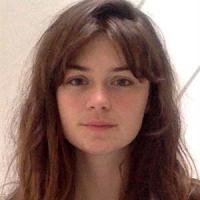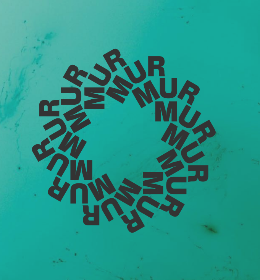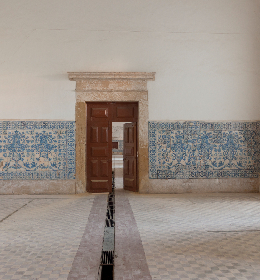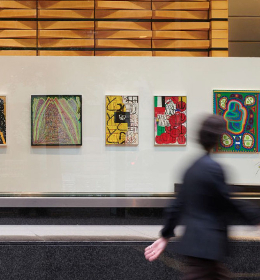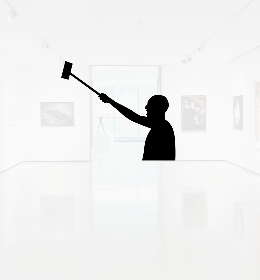Today, the foundation is ushering through more future stars “this group of artists that have just arrived (for the second round of Delfina’s ‘Performance as Process’ thematic) are, to me, the next generation of artists,” enthuses Cezar. “I’m convinced they’re all going to be something, or maybe they’ll be nothing,” he laughs, “but, success is different for every single person, it’s about artists continuing to work as artists.” Cezar’s conviction in these artists’ future success is probably a rational one; there were 14 Delfina artists in the most recent Venice Biennale, 12 alumni have gone on to win Turner Prizes and four of the five Abraaj Prize winners during Art Dubai 2016 had passed through Delfina. He admits that artists who undertake their residency program benefit from the prestige of association and for this reason, they select their artists carefully. Because it is this kind track record that allows Cezar to demand the trust of the art world. The top winner of the aforementioned Abraaj Prize, and recipient of $100,000, was Palestinian artist duo Basel Abbas and Ruanne Abou-Rahme, “we gave them their first residency,” says Cezar, “we took a huge risk with them, they presented a work in progress in this space, they were babies,” he exclaims, “it is nice to see someone you have put a lot of faith in come through with these successes, we’re raising money, and there is not necessarily a concrete outcome.”
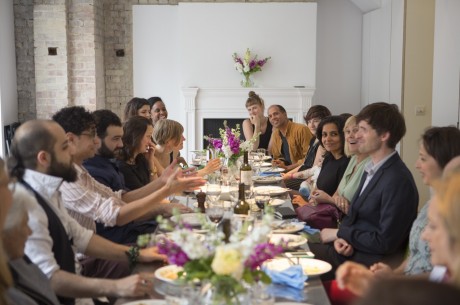
Public Domain family lunch, 2014, photo by Tim Bowditch, courtesy of Delfina Foundation
Whilst Delfina Entrecanales continues to finance 40% of the foundation’s annual budget, the remaining 60% is raised through individuals, embassies, partnerships and foundations. Artists in residence are provided a bedroom, a stipend, food and travel and visa expenses are covered, “it’s almost like a luxury residency,” says curator in residence Lina Romanyukha “a previous residency I took part in there was 12 of us sleeping in a cold church in the Netherlands.” But for Cezar, the importance of this kind of residency lies in the knowledge that it generates, “ I am convinced that there is a certain value that we bring to the real world,” he explains, “we often offer our knowledge and expertise for free for the good of society.” And so Cezar and his foundation do their bit by investing in individuals artists, providing residencies and giving them a space, no strings attached. “I think there is a value in artists that we haven’t really profited from yet,” he says, “work that is research based, experimental, about social engagement. It has a wider benefit and we have to crack it and also let the artists profit from it.”
When the foundation opened its doors in 2007, Entrecanales had recently returned from travelling through the Middle East, and until 2014 the Delfina Foundation was dedicated to cultural exchange with the MENASA region. The decision to go international was down to the “increasingly problematic label of cultural exchange,” explains Cezar. “It is a challenging concept when you are a Western organization based in England, a former empire, and then you work with places that are mostly postcolonial. There is a power imbalance when you turn up wanting to exchange!” he says. For this seems to be a weighty terminology “based on the notion of difference.” The shift from cultural exchange to artistic exchange “takes us towards similarities rather than differences through common practices and common issues.”
Delfina has not by any means severed ties with the Middle East: the thematic programs that the institution runs developed largely from the issues raised whilst working with artists from the region. Among these, ‘Politics of Food’, a recurring thematic which was thought up in light of the UK horsemeat scandal of 2013 and the simultaneous Arab Spring, also catalyzed, in part, by Bouazizi, the fruit and vegetable salesman who set himself on fire in Tunisia in December 2010. For Cezar the success of these thematic programs is that “it puts us as an institution into the residency. In a way, because of the themes, we become a repository of knowledge which can include the institution. Often, the knowledge can be solely the property of the artist, in which case only some traces remain. In our case we become a think tank, artists are coming into the discussion that we’ve already begun. And so when they leave, they leave us some of this knowledge which we can then transfer to the next set of artists.”
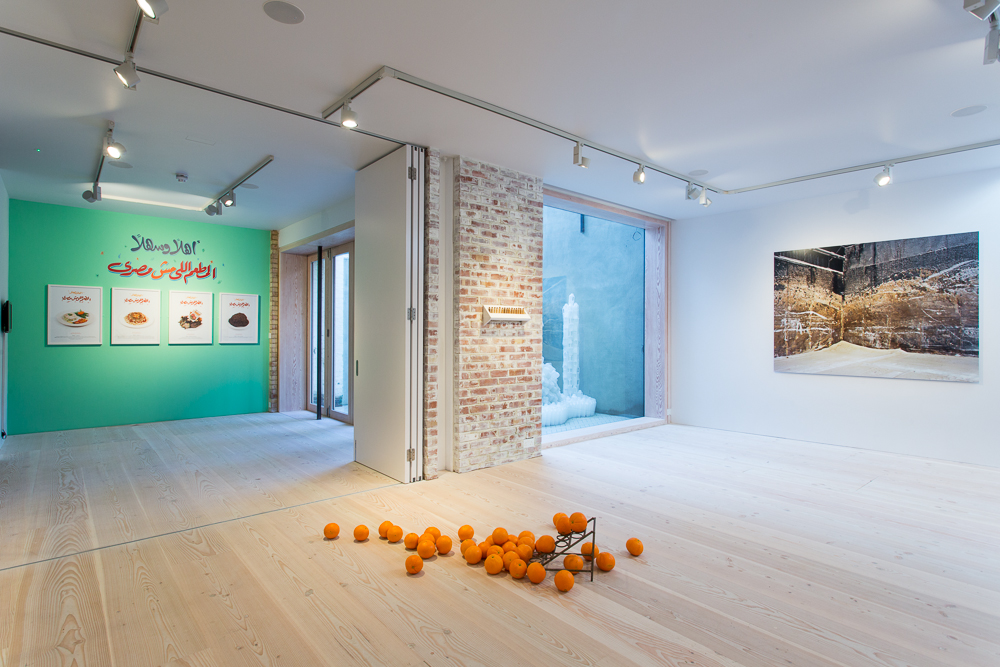
View, ‘The Politics of Food’, 2014 © Tim Bowditch
This exchange of knowledge also functions the other way around too. Most recently, Delfina hosted a curatorial season, inviting eight curators to take up residency at the foundation “supporting a curator in residence is a different experience,” explains Jane Scarth, Residency and Programmes manager at Delfina “it’s not just individual work on a project, but these curators may actually infiltrate the infrastructure in a new way.”
Artists at Delfina also profit from the nurturing environment that Delfina provides “as corny as it sounds,” smiles Cezar. They are provided with practical advice about their career, they practice their English, they are invited to fortnightly informal networking lunches within the foundation. “I feel very secure here, I feel safe, I don’t feel afraid to show my work here, people give criticism with a constructive eye,” says Romanyukha, “each time I went back to the Ukraine during the residency, I was just so happy to get back to Delfina, there is a homely atmosphere.” One recent story illustrates the intimate links that remain between the foundation and its artists: a former artist in residence from Istanbul was recently housed by the Delfina for three months after finding herself the subject of an investigation by the Turkish government after she had signed the Academics for Peace petition. “I was fucking scared,” she said “I called Aaron and told him what was going on. They shuffled some things around and got me to London so I could finish my thesis. That’s Delfina for you,” she smiles.



